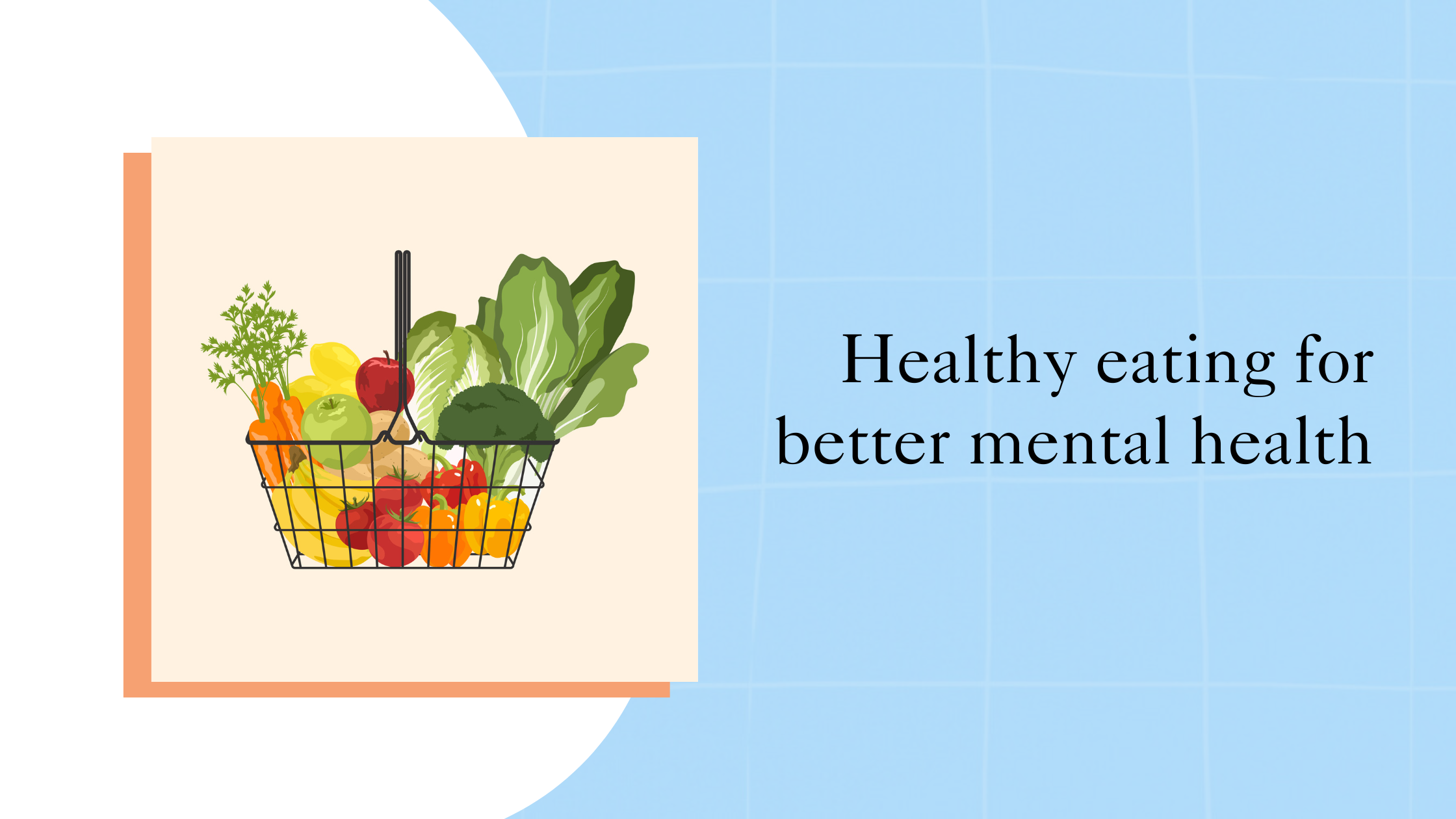Did you know that good nutrition not only provides nutrients to keep the body healthy, but also has an impact on our mental well-being? Several scientific studies have shown that diet plays an important role in our mental health, including in the treatment and prevention of disorders such as anxiety, depression and even schizophrenia.
A plant-based diet is one of the most popular choices for a healthy, balanced life. It consists mainly of fruits, vegetables, whole grains, nuts, seeds and legumes. This diet provides our bodies with the essential nutrients to maintain good physical and mental health.
In fact, plant-based foods are rich in antioxidants, vitamins and minerals, which help reduce inflammation in the body and protect the brain from oxidative stress. The omega-3s found in nuts and seeds are also beneficial for mental health, as they promote the production of neurotransmitters in the brain.
Many nutritionists stress the importance of a healthy plant-based diet for maintaining good mental health. They also recommend avoiding processed foods, added sugars and saturated fats, which can damage our mental and physical health.
All in all, a healthy plant-based diet can have positive effects on our bodies and minds. In this article, we'll look at the benefits of a healthy diet for mental health by examining the latest scientific research and advice from nutrition experts. We invite you to discover the benefits of a healthy plant-based diet and integrate these habits into your daily life for optimal mental health.
The benefits of a healthy diet for mental health
As we have seen, a healthy diet can have beneficial effects on mental health. Indeed, a recent study showed that people who eat a healthy diet are less likely to suffer from depression and anxiety. In fact, nutrient-rich foods such as fruit and vegetables, whole grains, nuts and seeds have been associated with a reduction in inflammation and oxidative stress in the body, both of which can contribute to the development of mental disorders.
People who eat a healthy diet also tend to have higher levels of emotional well-being than those who consume processed foods rich in sugar and saturated fats. Fruits and vegetables, in particular, contain vitamins, minerals and antioxidants that help regulate mood and reduce stress. Processed foods, on the other hand, are devoid of many of these nutrients. As a result, even if we fill our stomachs with food and feel full, we're not providing our bodies with the nutrients they need to maintain a healthy balance.
In addition, a healthy plant-based diet can have beneficial effects on the gut microbiome, which is closely linked to mental health. Studies have shown that gut bacteria can influence mood and behavior, and that diet can influence the composition of these bacteria.
Ultimately, a healthy diet can help maintain good mental health by reducing the risk of mental disorders and improving emotional well-being. Fruits and vegetables, whole grains, nuts and seeds are healthy food choices that provide our bodies with essential nutrients to maintain good mental and physical health.
Steps to take to start eating healthily
Eating healthy may seem daunting, but it's easier than you think. I've written five steps to help you start your journey to a balanced diet!
Step 1: Avoid processed foods
Processed foods are rich in sugars, saturated fats, salt and food additives that can cause long-term health problems. Start by reducing your intake of processed foods, such as fried foods, soft drinks, sugary snacks and foods high in saturated fat. Instead, choose fresh, whole foods such as fruits, vegetables, whole grains, nuts and seeds. You can start by replacing one food from your general diet per month to ensure the longevity of your change.
Step 2: Increase your fruit and vegetable intake
Fruits and vegetables are rich in vitamins, minerals, antioxidants and fiber that help maintain good mental and physical health. Start by adding a portion of fruit and vegetables to each meal. You can also choose seasonal fruits and vegetables for a variety of flavors and nutrients. If you eat three meals a day, that's three extra servings of fruit and vegetables in your day, which is a good start!
Step 3: Opt for lean proteins
Proteins are essential nutrients for the human body, playing a crucial role in tissue construction and repair, hormone and enzyme regulation, and energy production. Although meat, fish and dairy products are traditionally considered the main sources of protein, plant-based proteins are becoming increasingly popular due to their many health benefits.
Plant proteins are proteins derived from plant sources such as legumes (beans, lentils, peas), cereals (rice, wheat, quinoa), nuts and seeds (almonds, sunflower seeds, cashews). Unlike animal sources of protein, plant-based proteins have the advantage of being naturally low in saturated fat and cholesterol, and rich in fiber, vitamins and minerals.
Plant-based proteins can help reduce the risk of chronic diseases such as heart disease, diabetes and cancer. Research has shown that diets rich in plant-based proteins can help reduce blood pressure, cholesterol and inflammation, which can help prevent heart disease. Plant-based proteins are also associated with better weight management and a reduced risk of type 2 diabetes.
Plant-based proteins can also help maintain muscle health. While animal proteins are often considered the best source of protein for muscle building, studies have shown that plant-based proteins can also be effective in stimulating muscle protein synthesis and helping to prevent age-related muscle loss.
Finally, plant-based proteins can be an ecological and ethical option for people concerned about the environment and animal rights. Intensive livestock farming and meat production have a significant environmental impact, particularly in terms of water consumption and greenhouse gases. By choosing plant-based protein sources, we can reduce our ecological footprint and contribute to a more sustainable world.
Step 4: Limit your sugar and salt intake
Sugar and salt can be added to many processed and prepared foods, and can be difficult to avoid. However, excessive sugar and salt consumption can cause health problems such as high blood pressure, diabetes and obesity. Try to limit your intake of sugar and salt by choosing fresh foods and cooking your own meals. Remember, consumption in moderation is always better than restriction! So have your favorite donut during the week... but don't have a dozen!
Step 5: Drink enough water
Water is one of the most important substances in our bodies, accounting for around 60% of our body weight. Drinking enough water every day is essential for maintaining good health and body function. Here are the benefits of drinking enough water and how to know how much to drink according to your weight, age and physical activity.
The benefits of drinking enough water
- Maintaining hydration : Drinking enough water is essential to keep your body well hydrated.
- Improved digestion : Water helps digest food and prevent constipation.
- Improved kidney function: water helps eliminate toxins from the body by stimulating the kidneys to eliminate waste products.
- Headache prevention : dehydration can cause headaches. By drinking enough water, you can avoid this kind of pain.
- Preventing urinary tract infections : Water helps eliminate bacteria from the bladder and prevent urinary tract infections.
How to know how much to drink
The amount of water you need to drink depends on a number of factors, including your weight, age and physical activity.
- Weight : A general rule of thumb is to drink half your body weight (in pounds) in ounces of water. For example, if you weigh 154 pounds, you should drink about 77 ounces of water a day, equivalent to 2.1 liters of water.
- Age : Water requirements decrease with age, but older adults should always drink enough water to avoid dehydration.
- Physical activity : people who are physically active need to drink more water to compensate for fluid loss through perspiration. It's important to drink water before, during and after exercise. A good rule of thumb is to add one glass of water per 30 minutes of moderate to intense activity to your daily menu.
- Temperature: Temperature plays a crucial role in ensuring that our bodies are sufficiently hydrated. Did you know that you need to drink more water not only on hot days, but also on very cold ones? This is because your body uses a lot of energy to maintain a stable body temperature, whether it's hot or cold. So it's important to drink a little more water than usual in extreme temperatures to avoid dehydration. For example, if you're in a cold environment, you can try adding an extra cup of water to your normal daily intake, and two extra cups of water in a hot environment.

In conclusion, it's important to stress that diet plays a crucial role in our mental and physical health. By adopting a healthy diet, we can improve our overall well-being and reduce the risk of chronic diseases such as obesity, diabetes and heart disease. By following the simple steps listed above and making gradual changes to your diet, you can start to eat more healthily and improve your overall quality of life. Remember, every little step counts and every food choice is an opportunity to take care of yourself.
Want to know more? Here are some links you might find useful
Article : Plant-based diets: Tips from a dietitian - The Ottawa Hopital
Long documentary (42 min) : How Food Affects Our Mental Health | ENDEVR Documentary
Short Video (6 min) : Why Does Food Matter For Mental Health? Discover The Relationship Between Nutrition And Mood - Dr. Tracey Marks
Presentation (15 min) : A Plant-based Diet Changed My Life | Pat McAuley | TEDxBabsonCollege
If you would like to discover more content on personal and professional development, please click on this link to access other similar articles.

